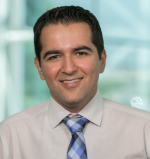
Amir H. Gandomi is a Professor of Data Science and an ARC DECRA Fellow at the Faculty of Engineering & Information Technology, University of Technology Sydney. Prior to joining UTS, Prof. Gandomi was an Assistant Professor at Stevens Institute of Technology, USA and a distinguished research fellow in BEACON center, Michigan State University, USA. Prof. Gandomi has published over two hundred journal papers and seven books which collectively have been cited 21k+ times (H-index = 67). He has been named as one of the most influential scientific mind and Highly Cited Researcher (top 1% publications and 0.1% researchers) for four consecutive years, 2017 to 2020. He also ranked 18th in GP bibliography among more than 12,000 researchers. He has served as associate editor, editor and guest editor in several prestigious journals such as AE of IEEE TBD and IEEE IoTJ. Prof Gandomi is active in delivering keynotes and invited talks. His research interests are global optimisation and (big) data analytics using evolutionary computations in particular.
Professor Bing Xue

Prof. Bing Xue (M’10-SM'21) received the B.Sc. degree from the Henan University of Economics and Law, Zhengzhou, China, in 2007, the M.Sc. degree in management from Shenzhen University, Shenzhen, China, in 2010, and the PhD degree in computer science in 2014 at Victoria University of Wellington (VUW), New Zealand. She is currently a Professor in Computer Science, and Program Director of Science in School of Engineering and Computer Science at VUW. She has over 300 papers published in fully refereed international journals and conferences. Dr Xue is currently the Chair of IEEE Computational Intelligence Society (CIS) Task Force on Transfer Learning & Transfer Optimization, Vice-Chair of IEEE CIS Evolutionary Computation Technical Committee, Editor of IEEE CIS Newsletter. Vice-Chair of IEEE Task Force on Evolutionary Feature Selection and Construction, and Vice-Chair IEEE CIS Task Force on Evolutionary Deep Learning and Applications. She is also served as associate editor of several international journals, such as IEEE Computational Intelligence Magazine and IEEE Transactions on Evolutionary Computation.
Professor Joong Hoon Kim
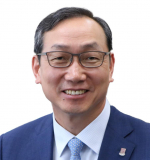
Prof. Joong Hoon Kim of Korea University obtained his Ph.D. degree from the University of Texas at Austin in 1992 with the thesis title “Optimal replacement/rehabilitation model for water distribution systems”. Prof. Kim’s major areas of interest include: optimal design and management of water distribution systems, application of optimization techniques to various engineering problems, and development and application of evolutionary algorithms. He has been the faculty of School of Civil, Environmental and Architectural Engineering at Korea University since 1993. He has hosted international conferences including Asia Pacific Hydrology and Water Resources (APHW) 2013, International Conference on Harmony Search, Soft Computing, and Applications (ICHSA) 2014, 2015, 2018, 2019 & 2020, Hydroinformatics Conference (HIC) 2016 & 2018, and Congress on Intelligent systems (CIS) 2020 and has given keynote speeches at many international conferences including Asia Oceania Geosciences Society (AOGS) 2013, Global Congress on Intelligent Systems (GCIS) 2013, Soft Computing for Problem Solving (SocPros) 2014 & 2015, Smart Water Grid International Conference (SWGIC) 2017, Recent Trends in Operations Research and Statistics (RTORS) 2017, ICHSA 2020, and International Conference on Communication and Intelligent Systems (ICCIS) 2020. His first paper regarding the Harmony Search algorithm “A New Heuristic Optimization Algorithm: Harmony Search” has been cited for more than 5,800 times according to Google Scholar. He is a member of National Academy of Engineering of Korea.
Professor Enrique Alba
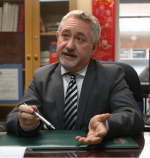
Prof. Enrique Alba had his degree in engineering and PhD in Computer Science in 1992 and 1999, respectively, by the University of Málaga (Spain). He works as a Full Professor in this university with varied teaching duties: data communications, distributed programming, software quality, and also evolutionary algorithms, bases for R+D+i and smart cities, both at graduate and master/doctoral programs. Prof. Alba leads an international team of researchers in the field of complex optimization/learning with applications in smart cities, bioinformatics, software engineering, telecoms, and others. In addition to the organization of international events (ACM GECCO, IEEE IPDPS-NIDISC, IEEE MSWiM, IEEE DS-RT, smart-CT…) Prof. Alba has offered dozens postgraduate courses, more than 70 seminars in international institutions, and has directed many research projects (9 with national funds, 7 in Europe, and numerous bilateral actions). Also, Prof. Alba has directed 12 projects for innovation in companies (OPTIMI, Tartessos, ACERINOX, ARELANCE, TUO, INDRA, AOP, VATIA, EMERGIA, SECMOTIC, ArcelorMittal, ACTECO, CETEM, EUROSOTERRADOS) and has worked as invited professor at INRIA, Luxembourg, Ostrava, Scotland, Japan, Argentina, Cuba, Uruguay, and Mexico. He is editor in several international journals and book series of Springer-Verlag and Wiley, as well as he often reviews articles for more than 30 impact journals. He is included in the list of most prolific DBLP authors, and has published 130 articles in journals indexed by ISI, 11 books, and hundreds of communications to scientific conferences. He is included in the top five most relevant researchers in Informatics in Spain (according to ISI), and is the most influent researcher of UMA in engineering (webometrics), with 14 awards to his professional activities. Pr. Alba’s H index is 62, with more than 18,000 cites to his work.
Professor Nikos D. Lagaros
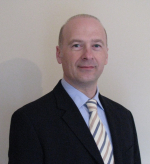
Dr. Nikos D. LAGAROS is the Dean of the School of Civil Engineering of the National Technical University of Athens (NTUA), Greece and Professor of Structural Optimization at the Institute of Structural Analysis and Antiseismic Research in the School of Civil Engineering of NTUA. He is the Director of the Personal Computers Laboratory, at the School of Civil Engineering of NTUA. Prior moving to NTUA, he was Assistant Professor in Civil Engineering at the University of Thessaly, Greece. In the past he also served as Visiting Professor at Department of Biological Engineering, Laboratory for Computational Biology & Biophysics, Massachusetts Institute of Technology, Boston, USA and the Department of Mechanical Engineering, Faculty of Engineering, McGill University, Montreal, Canada. Dr. LAGAROS obtained his BEng and PhD, both in Civil Engineering, from NTUA and he teaches classes on Structural Analysis, Optimization and Computer Programming. Dr. Lagaros has provided consulting, peer-review and expert-witness services to private companies and federal government agencies in Greece and Internationally. A focus of his consulting work is the assessment of buildings after earthquake events and the development of technical software for structural analysis and design. Recently he released the first, real-world, optimum design computing platform for civil structural systems. He also acts as NSF Panellist, for reviewing proposals on seismic performance of masonry, concrete, and other structures, Directorate for Engineering-Civil, Mechanical and Manufacturing Innovation, in Washington DC, since 2010. Dr. Lagaros is an active member of the computational mechanics research community, focusing on (a) nonlinear dynamic analysis of concrete and steel structures under seismic loading, (b) performance-based earthquake engineering, (c) structural design optimization of real-world structures, (d) seismic risk and reliability analysis, (e) soft-computing in structural engineering, (f) fragility evaluation of reinforced concrete and steel structures, (g) inverse problems in structural dynamics, (h) machine learning applications in healthcare, (i) evolutionary computations, (j) structural health monitoring and (k) nano-modelling. Among others, his publication track record includes more than 135 peer reviewed journal paper, 10 books and 25 book chapters while he has presented his work in numerous international venues. His h-index is 35 according to Google Scholar, with more than 5000 citations of his work.
Professor Xiadong Li
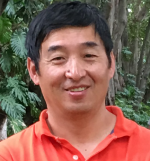
Xiaodong Li received his B.Sc. degree from Xidian University, Xi'an, China, and Ph.D. degree in information science from University of Otago, Dunedin, New Zealand, respectively. He is a Professor with the School of Computing Technologies, RMIT University, Melbourne, Australia. His research interests include machine learning, evolutionary computation, neural networks, data analytics, multiobjective optimization, multimodal optimization, and swarm intelligence. He serves as an Associate Editor of the IEEE Transactions on Evolutionary Computation, Swarm Intelligence (Springer), and International Journal of Swarm Intelligence Research. He is a founding member of IEEE CIS Task Force on Swarm Intelligence, a former vice-chair of IEEE Task Force on Multi-modal Optimization, and a former chair of IEEE CIS Task Force on Large Scale Global Optimization. He is the recipient of 2013 ACM SIGEVO Impact Award and 2017 IEEE CIS "IEEE Transactions on Evolutionary Computation Outstanding Paper Award". He is an IEEE Fellow.





